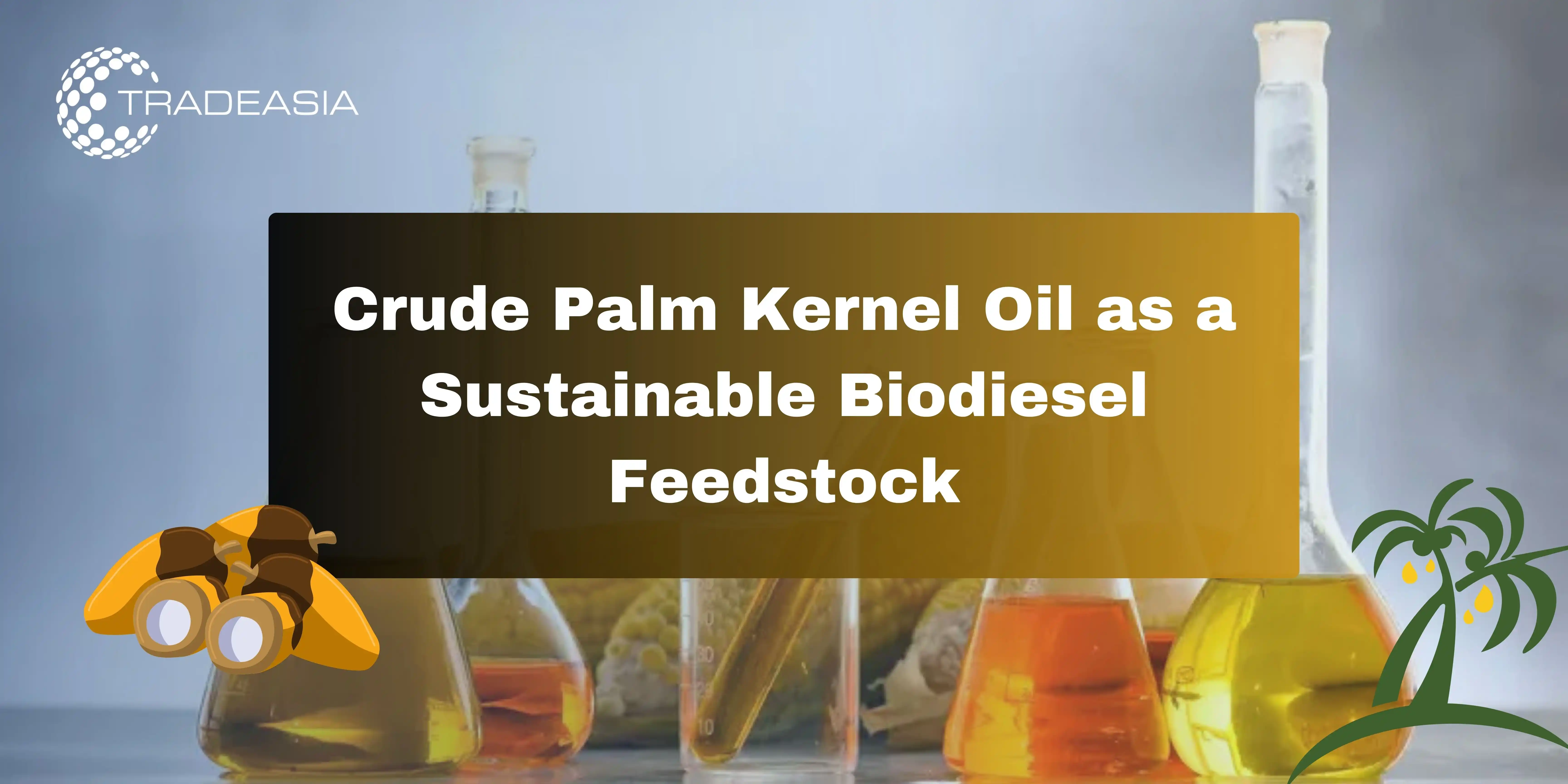As global industries strive to reduce carbon footprints and transition toward renewable energy, biodiesel has emerged as a promising alternative to fossil fuels. Among the various feedstocks available for biodiesel production, crude palm kernel oil (CPKO) has gained significant attention due to its abundant availability and high yield efficiency. Particularly in Southeast Asia, where palm oil production is prominent, CPKO represents an opportunity to drive sustainability while addressing energy demands. This article explores the potential of CPKO as a primary raw material for sustainable biodiesel production, emphasizing its environmental, economic, and technical advantages.
The Role of Crude Palm Kernel Oil in Biodiesel Production
CPKO, derived from the kernel of the palm fruit, is a byproduct of the palm oil industry. It contains a high percentage of saturated fatty acids, which makes it an ideal feedstock for producing biodiesel with excellent oxidative stability and energy output. Its versatility and chemical composition position it as a preferred choice for biodiesel producers aiming to meet stringent fuel quality standards.
In the biodiesel production process, CPKO undergoes transesterification, where it reacts with alcohol (commonly methanol) in the presence of a catalyst to produce fatty acid methyl esters (FAME), the chemical compound commonly known as biodiesel. The resulting biodiesel from CPKO not only meets global fuel specifications but also offers superior cold flow properties, making it suitable for diverse climatic conditions.
Environmental Benefits of Using Crude Palm Kernel Oil
-
Carbon Emission Reduction
One of the primary drivers of biodiesel adoption is its potential to reduce greenhouse gas emissions. CPKO-based biodiesel can significantly lower carbon dioxide emissions compared to fossil fuels, making it a cleaner alternative for transportation and industrial applications. The lifecycle emissions of CPKO biodiesel are lower, especially when it is sourced from sustainably managed plantations.
-
Utilization of Byproducts
The use of CPKO for biodiesel also promotes the efficient utilization of byproducts from the palm oil industry. By converting what might otherwise be a low-value byproduct into high-value biodiesel, industries can enhance resource efficiency and minimize waste.
-
Alignment with Renewable Energy Goals
Many countries are adopting renewable energy mandates to meet climate targets. CPKO biodiesel aligns with these goals by offering a sustainable, scalable solution for reducing dependency on non-renewable fuels.
Economic and Social Implications
-
Boosting Local Economies
Utilizing CPKO for biodiesel production can stimulate local economies, particularly in regions heavily reliant on palm oil production. The biodiesel industry creates job opportunities in feedstock processing, transportation, and plant operations.
-
Energy Security
Countries that import large volumes of fossil fuels can benefit from energy security by producing biodiesel locally. CPKO-based biodiesel reduces reliance on volatile international oil markets and stabilizes energy costs.
-
Market Competitiveness
As global demand for sustainable energy solutions grows, the market for biodiesel is expanding. Producers leveraging CPKO can capitalize on this trend, especially when paired with certifications that prove sustainable sourcing practices.
-
Supply Chain Diversification
Diversifying the feedstock supply chain by incorporating CPKO into biodiesel production can mitigate the risks associated with single-source dependency. This not only strengthens market resilience but also opens pathways for exploring additional co-products from CPKO processing.
Challenges in Using Crude Palm Kernel Oil for Biodiesel
-
Sustainability Concerns
While CPKO is a renewable feedstock, its sourcing raises concerns about deforestation, biodiversity loss, and land use changes. To mitigate these challenges, adherence to sustainability certifications such as the Roundtable on Sustainable Palm Oil (RSPO) is critical.
-
Production Costs
The cost of producing biodiesel from CPKO can be higher than traditional diesel due to feedstock prices and the complexity of processing. Innovations in production technology and scaling operations can help reduce costs over time.
-
Policy and Regulatory Barriers
Regulatory frameworks in different regions can impact the adoption of biodiesel. Governments must implement supportive policies, including subsidies, tax incentives, and blending mandates, to encourage the use of CPKO-based biodiesel.
-
Feedstock Availability
Although CPKO is widely produced, competition from other industries, such as food and cosmetics, can limit its availability for biodiesel production. This highlights the need for effective allocation and integrated planning across industries to balance demand.
Innovations and Future Potential
Technological advancements are paving the way for more efficient biodiesel production from CPKO. Innovations in catalysts, enzymatic processes, and feedstock preprocessing can enhance yield and reduce production costs. Additionally, integrating CPKO biodiesel production with other renewable energy systems, such as biogas recovery from palm oil mill effluent (POME), creates opportunities for holistic sustainability in the energy sector.
Emerging markets in Africa, South America, and Asia are likely to drive the future demand for biodiesel, offering an expanded market for CPKO suppliers. Research and development into co-products, such as glycerol derived from biodiesel production, can further improve the economic viability of CPKO-based biodiesel plants.
Strategic Partnerships
To maximize the potential of CPKO in biodiesel, strategic collaborations between palm oil producers, biodiesel manufacturers, and regulatory bodies are essential. Joint ventures can help streamline the supply chain, improve sustainability practices, and foster innovation in biodiesel technologies. Furthermore, partnerships with academic and research institutions can accelerate breakthroughs in production efficiency and environmental performance.
Conclusion
Crude palm kernel oil is a promising feedstock for sustainable biodiesel production, offering environmental, economic, and energy security benefits. However, to fully harness its potential, stakeholders must address sustainability concerns, reduce production costs, and align with supportive policies. As the global energy landscape evolves, CPKO-based biodiesel presents an opportunity to create a greener, more sustainable future while contributing to economic growth and environmental preservation. If you are interested in our products for your specific business needs, please do not hesitate to contact us.

Leave a Comment